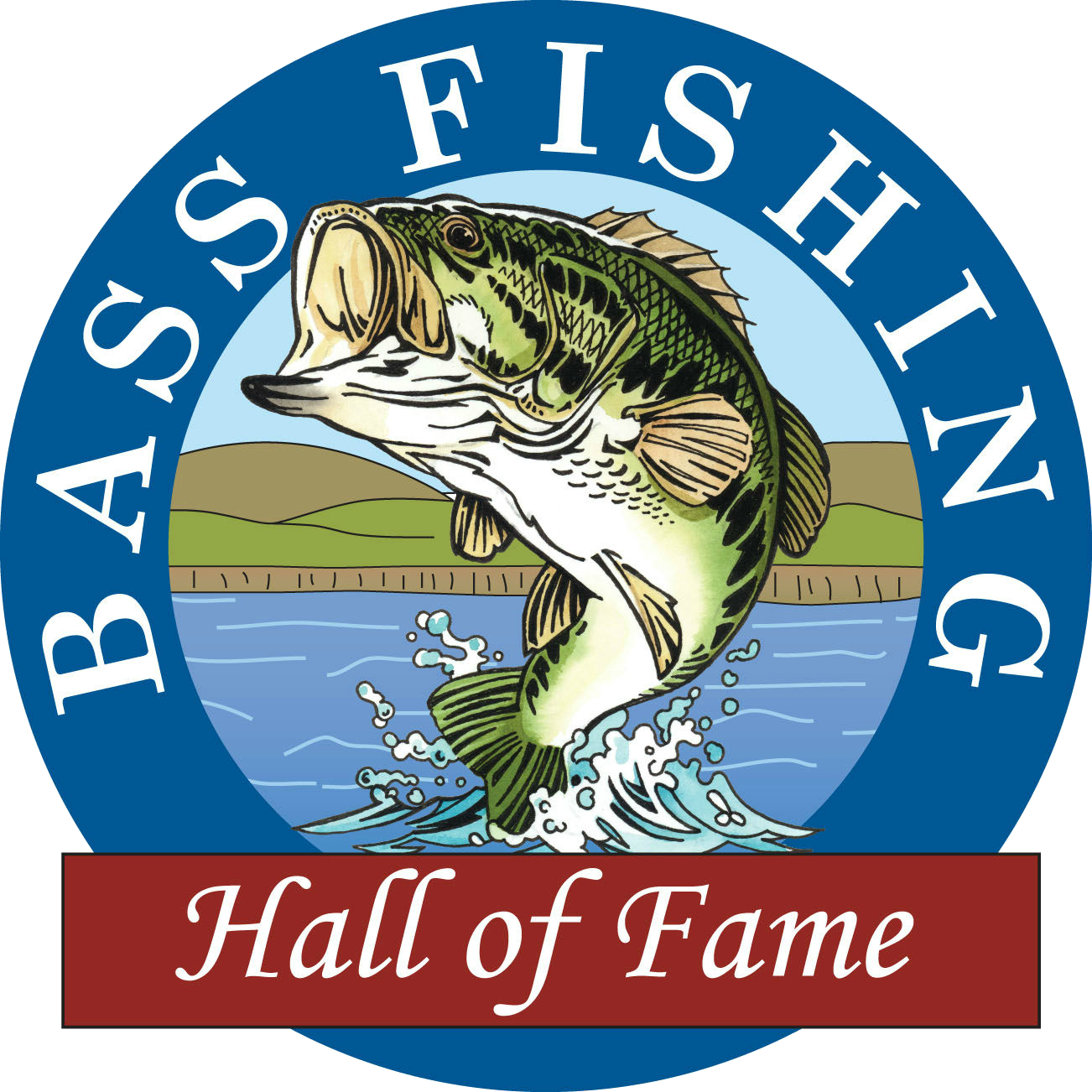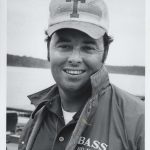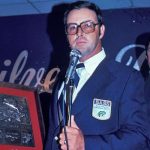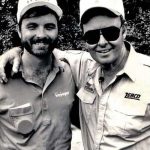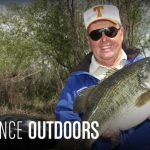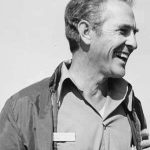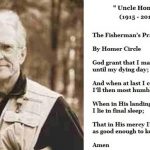Bill Dance
William G. “Bill” Dance It would be difficult to argue Bill Dance is the most recognized bass angler of all time. Even folks who have never made a cast recognize the friendly face under his iconic white and orange Tennessee Volunteer baseball cap — thanks to more than 2,000 airings of “Bill Dance Outdoors”, which first hit television in 1968.
However it’s critically important to understand Dance’s credibility on TV is based on one of the all-time great tournament careers, that very fittingly, includes him being credited with catching the very first bass ever in the history of B.A.S.S..
That fish ultimately began a streak of Dance winning 7 of the first 17 Bassmaster events he entered – and (3) highly respected B.A.S.S. Angler of the Year titles.
He also qualified for the Bassmaster Classic an impressive 8 of the 9 years he competed on the B.A.S.S. circuit.
No doubt, had Dance chosen to continue competing he was poised to set B.A.S.S. records that may have never been broken. Instead he chose TV – and the fishing universe is no doubt a better and more educated place because of his teachings.
His unique talent for communicating his knowledge of bass movements and seasonal behavior, along with lure selection, rod and reel selection, and a bit of biology and ecology too made Bill the favorite ‘on air fishing guide’ for millions.
But perhaps his greatest magic resided in his natural down-to-earth demeanor that made it feel as though your favorite uncle was taking you fishing while you watched from your living room.
“C’mon on here you fat-bellied rascal” was the sort of down-home statement Bill would utter to make viewers grin and feel at home, while they gained a half-hour of educational fishing entertainment.
On his side of the lens – that took way more hard work than how he made it look.
Well past age 70, and after 50 incredible years on TV, Bill and his camera crew were not only filming in freshwater, but harsher saltwater too, and a single half-hour show often required three days of filming.
In addition to the Bass Fishing Hall of Fame, Bill Dance is also a member of the National Freshwater Hall of Fame, the IGFA Hall of Fame, and the Tennessee Sports Hall of Fame.
All phenomenal credentials, and ironic too, given the fact Dance grew up believing he would likely become a doctor like his father and grandfather. He was actually enrolled in medical school, but the sight of horrific motorcycle crash changed his mind.
All who call themselves bass anglers can be thankful for that fateful change of heart. It lead to a career than spanned more than 50 years, touched the hearts and minds of literally millions, and ultimately made Dance the most recognized face in bass fishing of all time.
Dance is the husband to longtime wife Dianne, and father to four children. He makes his home near Memphis in the suburb of Collierville, where his television production studios are also based.
- Bill Dance with Steve Bowman
Bill Dance
Homer Circle (1915—2012) has fished over much of four continents and written about the world’s great sport fish. However, it has been his devotion to the bass that brings him to the Hall of Fame. He began his journalistic career, when he worked as the Public Relations Manager for the Daisy Air-Rifle Company, of Rogers, AR. His natural talent, easy-going personality and mild demeanor allowed him to blend in with everyone he came in contact with. In 1964, the world famous Sports Afield recognized his talents by naming him Angling Editor, a position he held for more than 36 years.
Writing about fishing and chasing sport fish around the world, are only a part of this man’s abilities. Over the years, he has held four world records for different fish species.
Mr. Circle’s outdoors accomplishments include: Past President of the Outdoor Writers Association of America; the only member to have ever received the O.W.A.A.’s top three awards. He is a former Arkansas Game and Fish Commissioner; the recipient of the Jaycee Service Award and the International Game Fish Association’s fellowship award.
If that’s not enough, this man has hosted three national television shows, on fishing, during his life; he has authored seven books; and has starred in more than 50 fishing films, one of which, every avid bass angler in the world has seen, Big Mouth.
When asked what his greatest accomplishments have been, he states “I think that I’ve been bountifully endowed because of two enduring blessings, my child bride of over 60 years, Gayle, and my unique profession”.
Mr. Circle passed away at the age of 97 in June 2012
Homer Circle
Ray Scott (1933-2022 ) — Ray Scott’s All-American Bass Tournament in June 1967 on Beaver Lake, Arkansas, is remembered as the seminal event in modern bass fishing, even though it wasn’t the first bass tournament in history. However, his subsequent tournaments — the Dixie Invitational on Smith Lake, Alabama, in October 1967, and the Seminole Lunker on Lake Seminole, Georgia, in February 1968 — may have been more impactful in that they marked the launch of the first professional bass tournament circuit.
It’s one thing to get 106 diehard bass fishermen to pay $100 for the right to fish a three-day tournament, as they did at Beaver Lake. It’s quite another to get them to return, again and again.
Before long, Scott’s fishing derbies became proving grounds for numerous advancements in gear and tactics, and created widespread demand for the newest boats, outboards, trolling motors, electronic devices and even tow vehicles.
In the beginning, Scott just wanted to raise the national profile of bass fishing to be, as he said, “on par with golf.” He did that and more — he created a sport that eventually would be the main driver in a massive sportfishing industry that generates more than $125 billion in economic impact and provides some 800,000 jobs.
His brainchild, the Bassmaster Classic, has become the biggest event in sportfishing and has earned the nickname, “the Super Bowl of Bass Fishing.” With attendance regularly surpassing 100,000 each year, the Classic Outdoors Expo has become one of the main venues for manufacturers to introduce new products to the buying public.
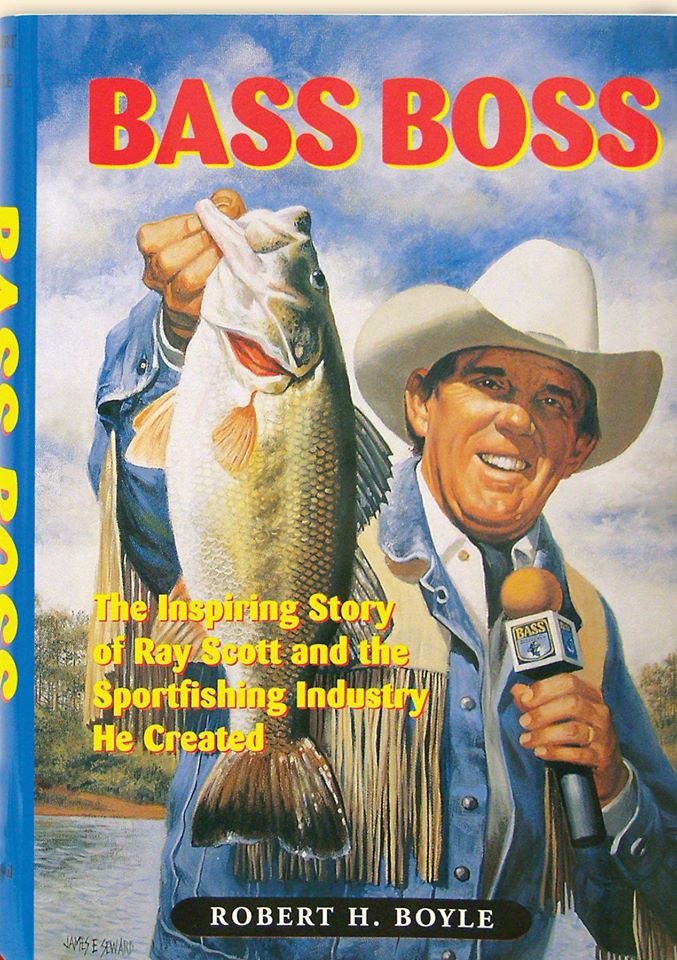
In addition to his tournament trail, Scott began to organize America’s bass anglers, launching the Bass Anglers Sportsman Society (B.A.S.S.) and its membership magazine, Bassmaster, at the beginning of 1968. Soon afterward, he and others, including up-and-coming professional anglers John Powell and Roland Martin, set off on a nine-month tour of the nation, presenting 101 seminars on advanced bass fishing. Packed auditoriums drew each community’s most dedicated anglers, and they formed bass clubs that became affiliated with B.A.S.S. through what is now known as the B.A.S.S. Nation.
Scott used the clubs and the growing clout of his membership to promote conservation and wise fisheries management. When B.A.S.S. filed antipollution lawsuits against more than 200 companies nationwide, Scott was interviewed on national news programs and by major newspaper journalists. The crusade has been credited as the impetus for establishing the Environmental Protection Agency in 1970 and passing the Clean Water Act of 1972.
His best-known contribution to fisheries conservation was no doubt the introduction of the catch-and-release ethic to bass fishing. Beginning in 1972, aerated livewells were required in B.A.S.S. tournament boats, and anglers were incented to keep their catch alive. As a direct result, bass anglers today release all or most of the bass they catch.
In 1984, Scott convinced then-Vice President George H.W. Bush to help secure passage of the Wallop-Breaux Amendment to the excise tax-funded Sportfish Restoration program. The fund in recent years has generated more than $350 million for boating access, fish restoration and other state-run fisheries projects.
Scott met Bush while the latter was campaigning for President of the United States in 1979. The two connected instantly, and Scott was tapped to serve as Bush’s Alabama State Campaign Chairman. According to Scott’s biography, The B.A.S.S. Boss, by Robert Boyle, demonstrations Scott organized on behalf of Bush helped secure his friend’s selection as Ronald Reagan’s running mate during the Republican National Convention in 1980.
Bush (a 2016 inductee into the Bass Fishing Hall of Fame) visited Scott’s homes in Montgomery and Pintlala, Alabama, where they fished on Scott’s well-stocked lakes. Bush later used the “bully pulpit” of the presidency to promote fishing and other forms of outdoor recreation, and he told the New York Times that his favorite periodical was Bassmaster Magazine.
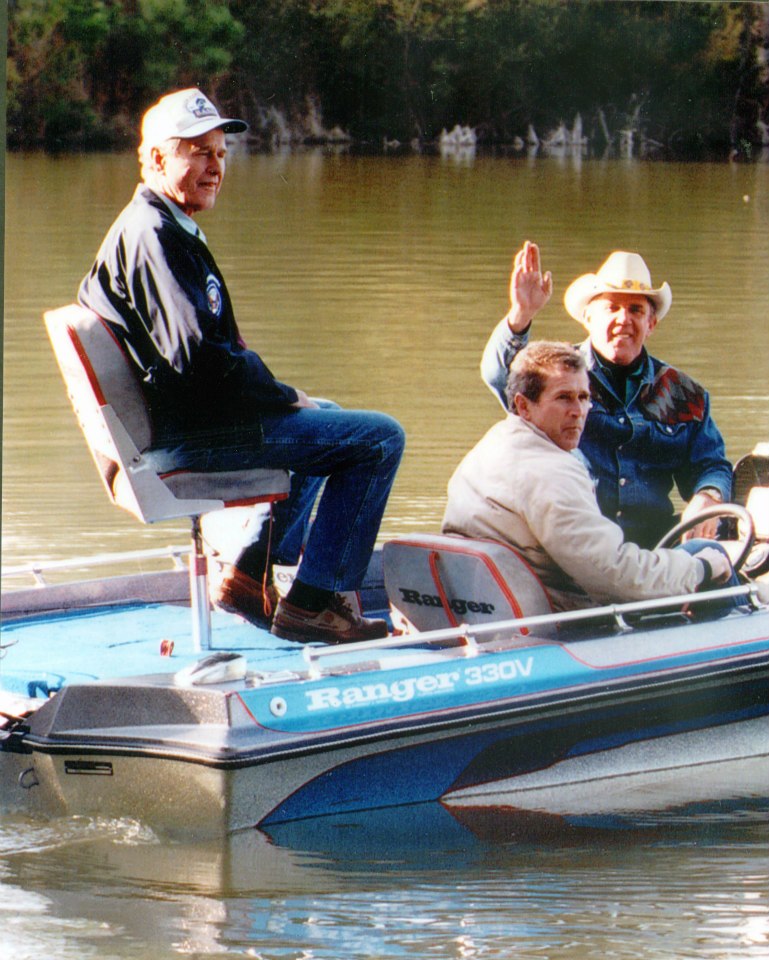
Dedicated to boating safety, Scott began requiring contestants to wear life preservers any time their outboards were running, and he pushed to make the “kill switch” a standard safety feature on boats. He was instrumental in creation and passage of the Boating Safety Reform Act in 1994, which made Alabama among the first states to require boat operator certification. He was appointed to the National Boating Safety Advisory Council by then-President Jimmy Carter and was inducted into the Boating Safety Hall of Fame in 2002.
For those and many other achievements, Scott was listed — along with President Teddy Roosevelt, Rachel Carson and Aldo Leopold — by Field & Stream Magazine as one of 20 people who did the most to influence outdoor sports in the 20th Century. Outdoor Life named the formation of B.A.S.S. as one of the Top 10 fishing innovations of the past century.
He has received countless other awards for his achievements during his 50 years in the bass fishing industry, but one that may have meant the most to him was the Horatio Alger Award, which he received in 2003 for overcoming adversity to achieve the “American Dream.” Born during the height of the Depression, Scott’s father was a farm laborer and his mother was a hairdresser. He overcame poverty and a learning disability (dyslexia) to become, as biographer Boyle described him, “the man who woke the sleeping giant” of America’s sportfishermen.
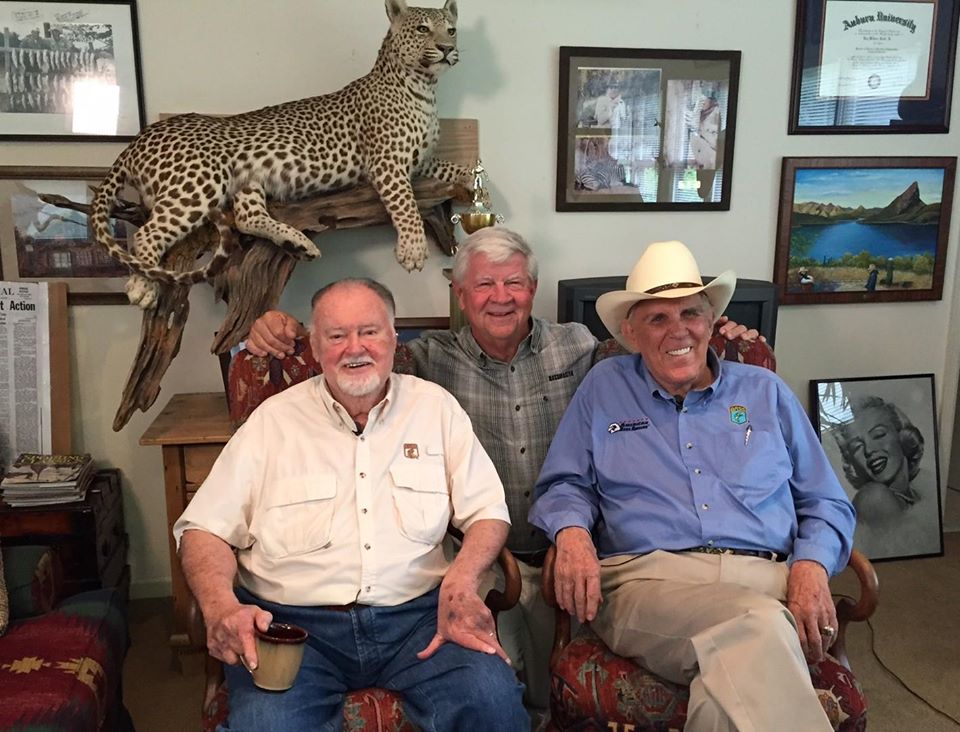
Ray with Bob Cobb and Dave Precht
Ray Scott
While he cut his fishing teeth in the state of Missouri as a youngster, Johnny Morris has proven that he can catch ’em anywhere he goes, around the world. During a very distinguished professional bass tournament career, he proved that he could “cast” with the best of them, when he competed along the B.A.S.S. tournament trail, during the early to mid-seventies. He qualified for five BassMaster Classics, during his professional tenure.
It’s not his contribution as a professional angler that brings him into this distinguished class, but his business skills. Johnny Morris has perhaps done more to assist anglers by providing quality fishing tackle, at affordable prices, than any single person in the history of the sport.
In 1971 he decided that he was tired of not being able to get a variety of fishing tackle at his local bait shops, so he did something about it. He cosigned an inventory loan with his father and set up a small, eight-foot tackle display in the back of his father’s “Brown Derby” liquor store. This wasn’t just any liquor store, on just any ole street corner. This was the most successful chain of liquor stores in the state of Missouri. With his successful father’s entrepreneurial sense of business savvy, a deep love and respect of the outdoors, and a desire to provide anglers everywhere with high quality fishing tackle at prices anyone could afford, the start of the now world famous “Bass Pro Shops” began in very humble surroundings.
His father also took the time to take him hunting, fishing and to teach him to respect and appreciate the outdoors.
His fish catching abilities were starting to get noticed by everyone around the central Ozarks region of the country. It was these fish catching skills that would aid him in selecting just the right lures to sell in his small, fledgling, tackle business.
By early 1974, the reputation of his tackle shop had grown to such a point that anglers who had traveled through Springfield, Missouri, and shopped with him, would often call back, placing orders for more lures, over the telephone. Sensing the need for a larger distribution network convinced this man to produce his first, 180-page catalog with about 1,500 items in it.
Today, that same “Bass Pro Shops” catalog is produced as both seasonal publications and a Master catalog. In all, more than 30,000 items can be found in today’s “Bass Pro Shops” catalogs, that are shipped to more than 34-million sportsmen. The success of the catalogs spawned two additional catalogs…one for saltwater anglers called: “Offshore Angler” and one filled with hunting gear called: “The Redhead” catalog. Regardless of your outdoor interest, this man has probably produced a catalog for your needs!
Before today’s mass produced, and mass marketed, fishing boats became mainstream, he saw a need for fishermen to be able to go to one location and purchase a fully-rigged, “fish ready” outfit.
“Tracker Marine” and “Bass Tracker” were formed. A move that proved to be both profound and profitable. Today, “Tracker Marine” entails a number of fishing boats, pontoon boats, houseboats, saltwater boats, and the high performance fiberglass bass boat “Nitro”.
By the early 1980’s “Bass Pro Shops” catalog had grown so large that thousands of anglers longed to have a place to shop for the same tackle that they were seeing on the pages of “Bass Pro” catalogs. Sensing a need in the marketplace, Mr. Morris created a place “where angler’s can meet and greet”. A wonderland for every fishing, camping, hunting or outdoor need that a person might have. In 1981, the now world-renowned “Bass Pro Shops-Outdoor World” opened it’s doors in Springfield, Missouri. A location that has grown to more than 4 million visitors a year and is the single largest tourist attraction in the state of Missouri, and one of the top 10 in America.
Johnny Morris’ accomplishments include: the world-class “Big Cedar Lodge”, on Table Rock Lake, south of Branson, Missouri; his “Top of the Rock”, Jack Nicklaus designed golf course, adjacent to “Big Cedar Lodge”. The 10,000 acre wilderness area he created: “Dogwood Canyon”.
He has been awarded the “President’s Award” from the International Association of Fishing and Wildlife Agencies, along with serving for six years on the Board of Directors for the National Fish and Wildlife Foundation, three of which he served as Chairman. He received the “Teddy Roosevelt Conservationist Award”, from former president George Bush and in 1992 was elected into the Sport Fishing Hall of Fame.
Johnny Morris
He began his fishing career, it seems, while still in diapers. After all, we’ve been watching him on television for over twenty-five years. To get a TV. show of his own, he had to be able to catch a bass. And, catch ’em he can.
Jimmy Houston won his first professional bass tournament in 1966. In 1968, he began fishing the B.A.S.S. tournament trail. Something he continues, even today.
His first tournament on the B.A.S.S. circuit certainly proved that he could “stick with the big boys”, when he finished in sixth place at Lake Eufaula, Alabama. A performance that was simply a “forecast of things to come”. As his tournament record started to grow, so did the thousands of fishing fans who came to watch him weigh-in his fish, tell a joke, give fishing advice, or simply discuss bass fishing with him. He has been, and continues to be, one of the most popular anglers ever. Plus, he’s easily one of the most recognizable anglers to ever wet a hook. With his boyish looks, his trademark Moe Howard haircut, and that unforgettable giggle, this man is someone whom you both enjoy being around and learning from at the same time.
Personality aside, this man catches bass and lots of them. In 1976 he won his first B.A.S.S. “Angler-of-the-Year” title, and followed it up with another B.A.S.S. “Angler-of-the-Year” title in 1986. Along the waterways of America, he has acquireded two national B.A.S.S. tournament victories, he’s placed in the money an astounding 50% of the time he’s competed and has won over $400,000 dollars along the B.A.S.S. and Wal*Mart FLW Tours.
Jimmy Houston has also produced one of the most popular television programs of all time, for more than twenty-five years, and his “Jimmy Houston Outdoors” television show is seen each week on ESPN2 by more than 73 million viewers.
In addition, he is a great businessman. His many “Jimmy Houston Outdoors” marine dealerships have proven to be the “in spot” to purchase boats, in every community he’s opened one and the number of dealerships that he owns continues to grow!
Jimmy Houston
Known affectionately as “pawpaw” (he is a grandfather), it was his mild demeanor and years of giving fatherly advice to tournament fishermen across America that gained him this name with hundreds of tournament pros.
Guido Hibdon, while having fished all of his life, came to the national fishing public’s attention, when he won the first B.A.S.S.. tournament he ever competed in, on Lake of the Ozarks, Missouri, in 1980. This, however, was only the beginning of a storied career for this outstanding angler.
While growing up in the mountains of central Missouri, he became known as one of the best hunters and fishermen to ever go in search of his prey. Growing up in a family that was the first to guide on Lake of the Ozarks had a little something to do with it.
Early on, he learned to make fishing lures for a living. Not as a business, but out of necessity.
Since he began his professional tournament career, in 1980 he has collected awards and achievements second to none. In 1988 he won one of the toughest BassMaster Classics ever held, by capturing the title on the James River, outside of Richmond, Virginia, with a three day total of 28 pounds, 8ounces.
What made this victory so much sweeter, was the fact that, for three days, he had a captive audience of dozens of spectator boats following him up the tiny Appomattox River. Anyone who has seen the television coverage of this event knows what it meant. At this same event, his son, Dion, was also making his first BassMaster Classic appearance. A father/son combination that has only been accomplished one other time during B.A.S.S.. history and a Classic title that his son would also capture a few years later.
However, fishing under tough conditions proved to be his forte. In 1990 and 1991, he captured the coveted B.A.S.S.. “Angler of the Year” title. A “back-to-back” feat that has only been done twice throughout the history of the Bass Anglers Sportsman Society’s tournament trail. Once, by the legendary angler Roland Martin.
It was this man’s uncanny ability to catch bass in gin-clear lakes, on small, four-to-eight pound test lines, that have become the stuff that legends are made of. He is credited with catching more bass over ten pounds, on light line, than most people have ever caught on any size of line. He’s designed some of the greatest bass lures ever created, for Gambler Lure Company. Baits like the “Guido Bug” and the “Guido’s Original”.
And, just to prove that, in his mid-fifties, he still has the “right stuff”, he finished in 4th place in last year’s Wal*Mart FLW Tour “Angler of the Year” race.
